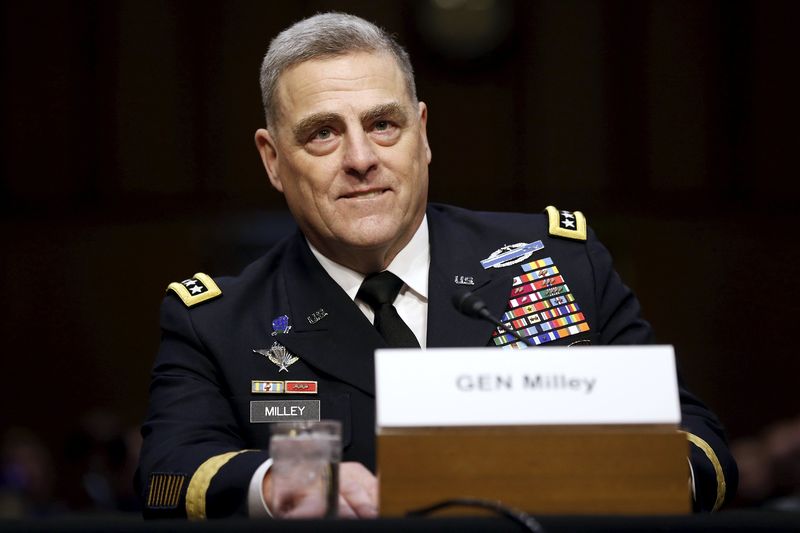Who is Kevin Hassett? Wolfe looks at the Trump ally tipped to become Fed Chair.
By David Alexander
WASHINGTON (Reuters) - Putting U.S. air controllers with Iraqi forces closer to combat areas so they can identify and direct bombing would improve air strikes on Islamic State rebel targets and should be "seriously considered," a top U.S. general told lawmakers on Tuesday.
General Mark Milley, nominee for the next Army chief of staff, also told his Senate confirmation hearing he favored providing lethal defensive equipment to help Ukrainian troops counter the artillery of Russian-backed rebels.
Milley, who served in both Iraq and Afghanistan, was named to replace outgoing Army Chief of Staff Ray Odierno, whose four-year term ends in several weeks.
Milley's appointment is one of several that is reshaping U.S. military leadership. Another is the choice of Marine Commandant Joe Dunford as new chairman of the joint chiefs of staff to replace outgoing Army General Martin Dempsey.
Asked if Iraqi security forces, who have sometimes retreated from combat, were willing to fight Islamic State rebels, Milley said they were when he was in the country.
But after U.S. military withdrawal in 2011, the chain of command was "decimated," troops were not getting "proper pay" and training "went down the tubes," he said.
"If three or four years go by and you lack training, you lack money, you lack equipment, you lack spare parts and most importantly you lack a competent, capable, committed leadership, then you can certainly understand why units fell apart," Milley said.
Asked if forward U.S. air controllers were needed in Iraq, Milley said they would provide "more effective close-air support."
The step "should be seriously considered," he added later, noting that there would be "lots of issues with that, with security of our people."
Dempsey has rejected routine use of forward air controllers, but has indicated he might recommend them for important battles where they could affect the outcome.
Milley said he agreed with Dunford's recent comment that Russia posed the greatest threat to the United States because of its large nuclear arsenal and its behavior in recent years.
"The activity of Russia since 2008 has been very, very aggressive," he said. "They've attacked and invaded Georgia, they've seized the Crimea, they've attacked into the Ukraine. That's worrisome."
Asked whether the United States should provide weapons to enable Ukraine to counter artillery and rocket fire from Russian-backed rebels, Milley said, "lethal equipment, I think, is something we should consider, and I would be in favor of lethal defensive equipment."
The United States has resisted providing defensive lethal weapons to Kiev due to concerns about escalating the conflict. But U.S. officials have indicated they are considering it.
